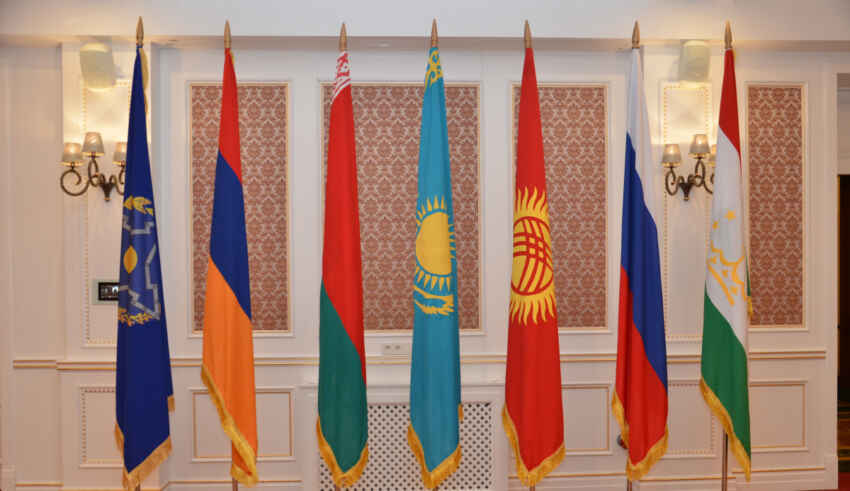
Armenia is a country with an amazing history and people, but also with an extremely sensitive geopolitical position. Armenia is located within three major regional power: Iran, Turkey and Russia what demands an intensely balanced approach to foreign policy.
If we take a closer look at the region, we additionally might see, that Armenia is surrounded by big Muslim states (Iran, Turkey, Azerbaijan). This fact also has an impact on the Armenian national policy and policy towards its neighbours.
However, it is safe to say, that the biggest issue for Armenia now is security and a matter of reliance on the allies in a stable Nagorno-Karabakh armed conflict with Azerbaijan. On 23 November, Armenian Prime Minister Nikol Pashinyan refused to sign a draft declaration of the Collective Security Treaty Organization (CSTO) Collective Security Council and a draft of joint assistance measures for Armenia [1]. This action was a clear message towards CSTO’s inability to act in accordance with its political aim and legal obligation.
Clearly, CSTO is an anti-NATO alliance, eventually, nobody hides it, but from a legal point of view it is the same collective defence system for former post-Soviet states, however not all post-Soviet states are happy to have this magic creature nearby. Article 4 of the Collective Security Treaty creates an identical mechanism ‘all for one’. For some reason the ‘leading’ member of the CSTO-family – Russia is not able to act to defend the CSTO member state.
To make it more understandable, the Armenian Prime Minister made a good point that CSTO sent troops to CSTO member Kazakhstan to help President Kassym-Jomart Tokayev survive a wave of unrest [2], but CSTO literally failed to help Armenia in an open armed conflict with Azerbaijan and Turkey aside (sending peacekeepers is a good option, but Armenia expected something else).
For Armenia, it has arisen a few new calls:
- How to figure out the armed conflict with Azerbaijan (which is supported by Turkey);
- What to do with CSTO, which mostly holds authoritarian regimes alive, but does not perform the primary idea behind;
- Where to find new alliances.
Regarding the first issue, we could say that from a military approach Armenia is not able to finish the armed conflict without the support of major regional power which is willing to end the conflict by mutual consensus of the Parties. Russia is not capable of doing it at the moment due to its extremely fragile position in Ukraine. Turkey is not an option for Armenia, due to long-standing ‘frozen’ relations. Iran has not expressed particular interest and the latest collaboration with Russia makes it less likely to happen. Under such circumstances, the USA has already shown their interest, when Nancy Pelosi arrived in Armenia, but no further steps have been taken.
Armenia, indeed, is the only state in CSTO which is not authoritarian, which makes it the black sheep within the Union. Additionally, all Armenian’s attempts to wake up the collective security system have failed and Article 4 did not work properly. Even presence in CSTO does not guarantee safety in the region.
The last matter is the hardest one, due to the geopolitical position of Armenia and too many regional powers which are contesting the region. Unfortunately for Armenia, the main player which has been asked to protect is not willing to do so due to its weakness.
Still, the collective security system might be the most appropriate way for Armenia, however, only that system is able and willing to perform the primary function. Russian leading CSTO, indeed, is not an example of that.
References:
- Pashinyan refuses to sign CSTO document on joint assistance measures for Armenia, <https://interfax.com/newsroom/top-stories/85309/>
- Kremlin defends Russian-led security alliance after Armenia criticism, <https://www.reuters.com/world/europe/kremlin-defends-russian-led-security-alliance-after-armenia-criticism-2022-11-27/>
By The European Institute for International Law and International Relations.















